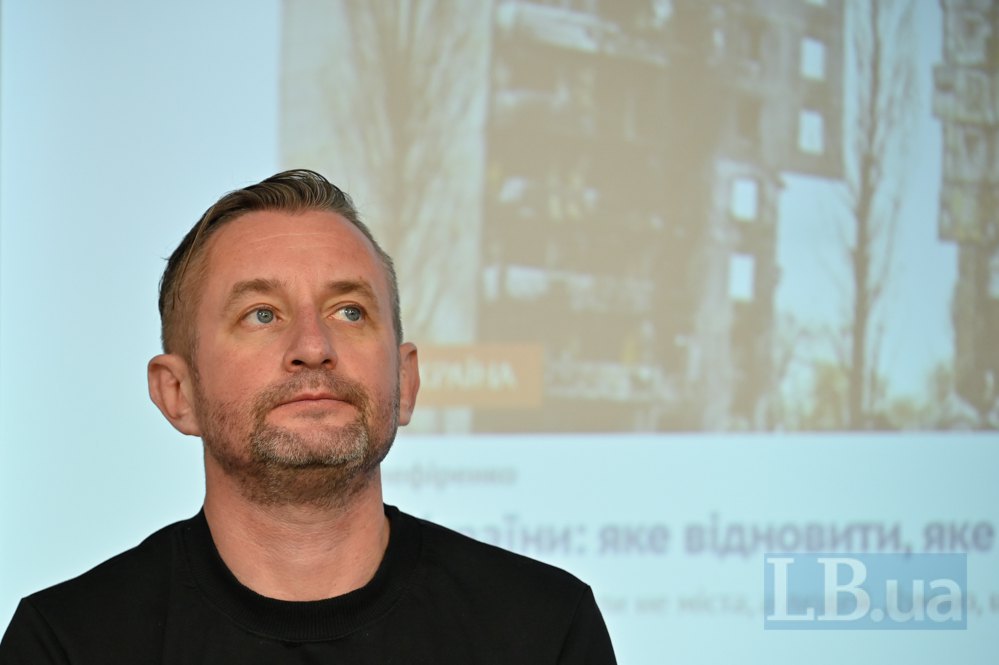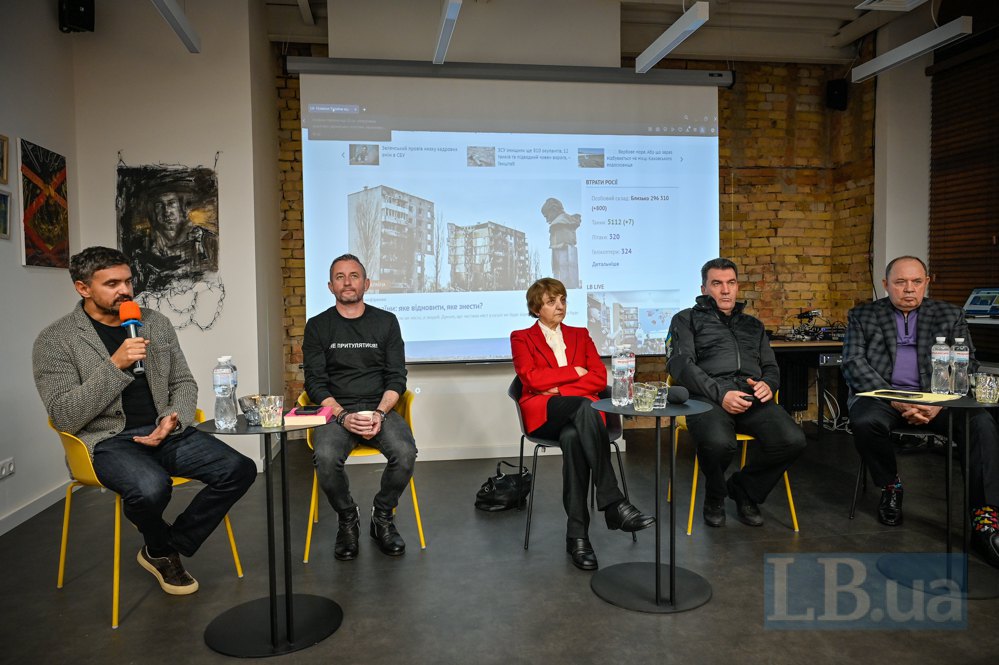"It is obvious that a cultural dialogue with Russia is impossible now, as, in principle, any dialogue. What dialogue could there be with a country that is at war against you? Assuming that the war ends, it is still very difficult and painful to establish a conversation. I can't imagine a Russian Willy Brandt coming to Popasna, for example, and kneeling there. Despite all the wild imagination of a writer," Zhadan noted.
The post-war processes between Ukraine and Russia will be much more complicated than those between the states after World War Two, the writer suggested, adding that it was still necessary to start talking about them.
"It seems to be clear that when we are so sensitive today, it is very difficult and rather ungrateful to talk about the future. Because everything is very abstract, based on nothing but our faith, our strength, our confidence. We are well aware that the future will happen one way or another. There is only one option when it does not, and that is the destruction of civilisation. But let's not consider the worst-case scenario," Zhadan said. "It is clear that the future cannot be separated from the present, which is being formed right now. Obviously, we should be talking about it. Because words must be followed by actions, so we should already think about possible strategies."

A social contract is needed in this context, he added.
"Going back to the cultural strategy, cultural dialogue and the thesis that it cannot be held with Russians, it is true. But there is a fine aspect. It is very important and will probably determine a lot. In particular, the exact timing, pace, and scale of the attitude towards Russian culture and the Russian cultural tradition. This aspect is a social contract. It is a right, good thing, but I would speak of a social contract not within Ukraine, but in the whole world.
Because, of course, if we imagine that this war is coming to an end, obviously, many things need to be reconsidered: security, political, geopolitical, economic, humanitarian, and cultural. And the thing is that culture is so unobvious in this sense, you can't just condemn Russian culture in the same way as, for example, Russian foreign policy. You can't take three novels as an example and explain it to the West that Russian culture is a big bluff and a big stage set," he argued.
Due to the wide gap between our emotional experience and that of the world, and the high level of tolerance to Russian culture, this process will be long, and we can predict our "great disappointment", he warned.
"We want empathy, we think that we deserve it, that the world should support us. Russia's violations are obvious to us, as well as the injustice that is being done to us. And when we encounter a lack of compassion, empathy and solidarity, we are very often unprepared for it.
This is what we have seen over the past year and a half, when Ukrainians have been trying to explain themselves to the world. It's one thing when it happens at the level of politics, presidents, MPs and ministers because the language of politics is completely different, more dry and pragmatic. But when it comes to the cultural component, everything becomes very complicated because it is subjective and irrational.
Culture is actually interesting and important because of its subjectivity, its certain lack of necessity. We love this or that novel, this or that music not because it is good or bad music, but because it is close to us, because it resonates with us. Accordingly, all those stereotypes, all the continuity that connects, for example, Europe with Russia, precisely when it comes to the cultural component, are difficult to break with the footage from Bucha, Hostomel or Severodonetsk, unfortunately," said Zhadan.
In his opinion, humanity has learnt few lessons from the twentieth century, from the experience of World War Two and the Soviet historical legacy, and our illusions in this regard are often exaggerated.

"It turned out that the world continues to live in the conditions, realities, and matrix of the twentieth century. And it is satisfied with it. Accordingly, not everyone is ready to go beyond this convenient matrix. The world is ready to at least declaratively oppose Putin, but it is not ready to oppose Pushkin. It says that these are different things. Like, let's separate them: there are bad Russian politicians, there are Russian war criminals; but just look at how beautiful the culture is, how it influebces us, and it is very important to us.
At the same time, there is one big substitution, one big mistake. It is obvious. It's on the surface, but no one wants to talk about it because it's too uncomfortable. We forget, turn a blind eye, or don't want to talk about the fact that culture is a component of any ideology," the writer insists.
Every country, civilisation, and ideology is based on a cultural component, and it is inseparable and important, he added.
"Our native culture is very important to us. Not because we are so aesthetically developed or cordocentric, because we love to sing so much or because our language is so beautiful. But because it is to a large extent our values, our meanings, what defines us and shapes our identity. Not only who our president is or who the opposition is, but also what writers we studied at school, what songs we sang at home and what films we watched on TV. This shapes us much more than today's politics, economic circumstances, or state formations," Zhadan said. He added that their culture is also important to Russians, as proven by the way they promote it.
"Russians are well aware that every monument to Pushkin is not just a tribute to the great poet, not just evidence that Russians love poetry, it is a certain marker, a border post. If it is placed there, it marks the territory. They are here, and this whole 'Russian world' can be built around this monument. It's a simple thing. It lies on the surface, but the world often wants to ignore it. Then it wants to further develop it. And my point is that these conversations are actually ahead for us. They are definitely ahead for us. And since direct cultural dialogues with Russia are unlikely to be possible in the near future, they will obviously be between Ukraine and the world," the writer suggested.
At the moment, the world is reducing mediation to attempts to reconcile us on the basis of culture.
"The world will mediate. The world will try to somehow drive us together, apart. It is still trying to do so. Stubbornly, persistently bringing Ukrainians and Russians together at literary forums, festivals, and presentations. To show that culture is a sphere where you can find common ground.
In fact, what the world is doing is very harmful. Because it devalues many obvious things: that there is evil and there is a rapist, that there is a victim of this evil and this violence," Zhadan concluded.








